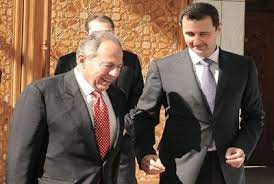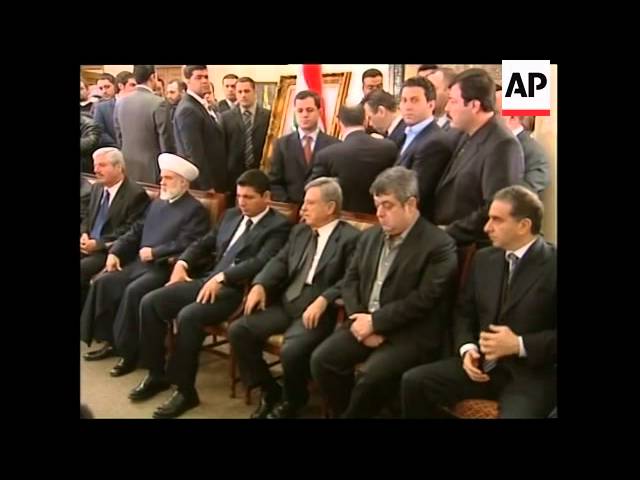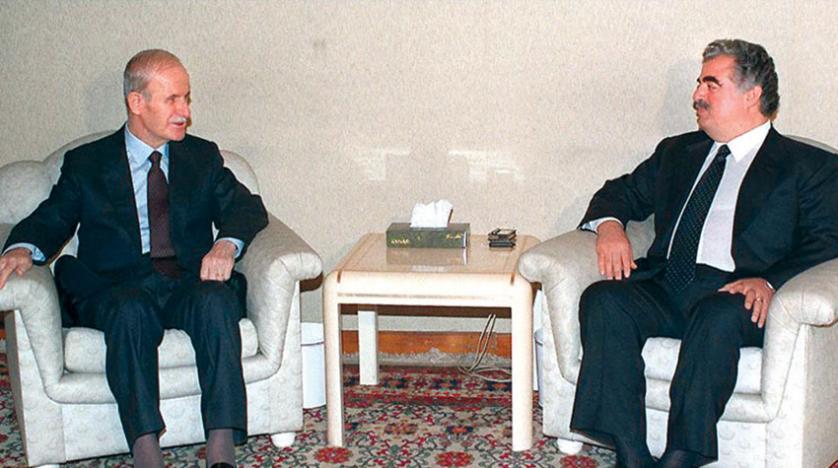Former Syrian Vice President Abdul-Halim Khaddam, in his memoirs, revealed details about President Bashar al-Assad’s visit to Iran in March 2003, just before the U.S. invasion of Iraq.
The newspaper “Al-Sharq Al-Awsat” published the first part of the memoirs of the late Syrian politician, which focused on the visit to Tehran. Khaddam, who accompanied Bashar al-Assad at the time, wrote that during his meeting with the former Iranian President Mohammad Khatami, al-Assad said that Syria is “the most supportive state of the Iraqi regime, but Iraqi-Syrian coordination is the least.”
According to Khaddam, al-Assad added, “It is a strange regime living in another world… the relationship is weak due to the lack of trust between our two regimes.”
Al-Assad also touched upon the need to expand relations with the Iraqi opposition and create other elements for coordination. “The most important point is in the Kurds’ thinking of establishing their own homeland,” according to Khaddam’s memoirs.
In this context, al-Assad said, referring to discussing the matter with the former Turkish president Abdullah Gul, that the main axis of cooperation between Syria and Turkey at that time is the issue of the Kurdish state.
The Syrian regime held talks with its Iraqi counterpart discussing the Iraqi opposition. However, the response was that Iraqis were not afraid of anyone, according to al-Assad’s statements as mentioned in Khaddam’s memoirs.
Khaddam also mentioned that al-Assad proposed during the visit to give false promises to the Iraqi opposition in an American manner, after Khatami described them as unacceptable.
In response to Khatami’s question, “Are you assured of the possibility of the army doing something domestically? If the United States wins quickly, it will be difficult,” al-Assad considered that “the solution is in resistance, and in the event of war, preparations must be made before it occurs.”
The late Abdul-Halim Khaddam also pointed out that Syria and Iran “opposed the U.S. invasion of Iraq for fear of the conflict spreading within the borders of both countries.”
The United States, and subsequently a number of coalition countries, launched the war against Iraq on March 20, 2003. On May 9 of the same year, the capital, Baghdad, fell, and most of the Iraqi territories came under the control of coalition forces.
The war was launched under several pretexts, including the Iraqi government’s failure at that time to implement United Nations resolutions regarding allowing international inspectors to search for weapons, and Iraq’s possession of weapons of mass destruction, among other reasons.
The attacking countries also relied on the support of a section of the Shia in the south (later having military factions supported by Iran and controlling the country’s fate), and the Kurds in the north, to overthrow the regime of the former President Saddam Hussein.
On January 5 of the previous year, the Iraqi parliament voted to end foreign military presence in the country, a move rejected by Washington. However, the United States withdrew from several military bases and handed them over to the Iraqi army.
It is worth mentioning that Abdul-Halim Khaddam was born in 1932 in Banias, Tartus Governorate. He is considered one of the close associates of the senior Assad. He progressed through various political positions, starting as the governor of Hama in the 1960s until he reached the position of vice president.



